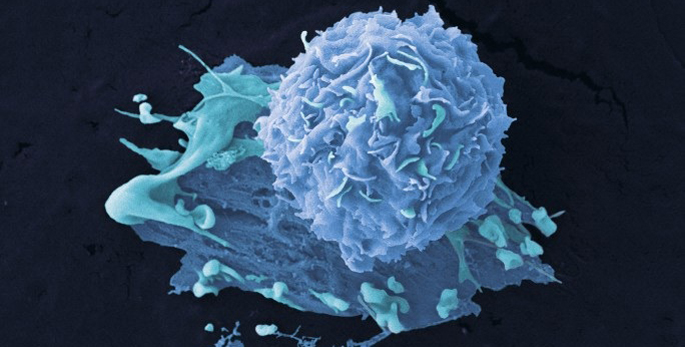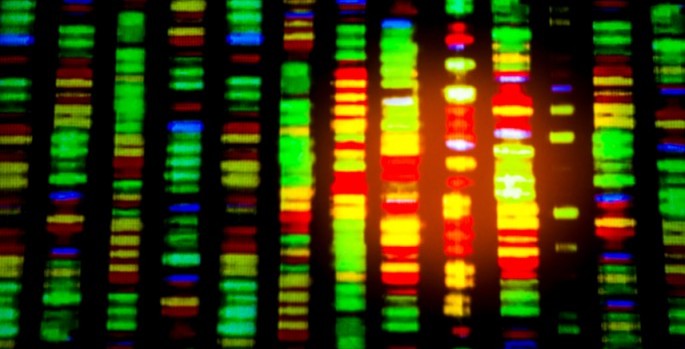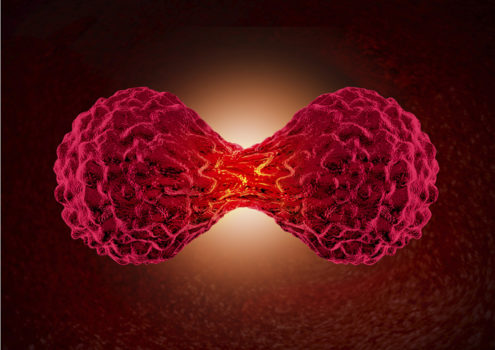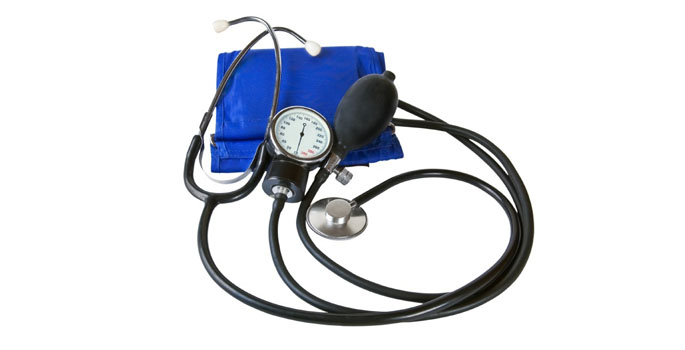NIH
-

Switching breast cancer off
Signaling by a receptor that is overexpressed in aggressive forms of breast cancer has been linked to glutamine metabolism, suggesting new anti-cancer therapeutic targets. Read MoreApr 14, 2016
-

Immune defenses in asthma
Vanderbilt researchers show that a certain factor negatively impacts the first-line responder cells in the lungs, providing one explanation for why patients with asthma are at greater risk for invasive bacterial disease. Read MoreApr 5, 2016
-

New role identified for p73 gene
The p73 gene is required for the generation of cilia – hair-like projections on cells – findings that could have implications for the study of lung diseases and sterility. Read MoreApr 1, 2016
-

Cancer prevention and poverty
A new epidemiological study supports smoking cessation and avoidance of sedentary lifestyle as cancer prevention measures. Read MoreMar 31, 2016
-

Readmission prediction face-off
Using patients’ health records to assess preparedness for hospital discharge is more effective at predicting readmission or death than commonly used questionnaires. Read MoreMar 23, 2016
-

Putting schizophrenia to bed
A new compound developed at Vanderbilt treats multiple symptoms of schizophrenia in an animal model, without causing sedation. Read MoreMar 21, 2016
-

ROCKs and cancer invasion
The rigidity of the microenvironment around cancer cells drives invasive behavior through distinct ROCK signaling pathways, which could guide the development of specific anti-invasive therapies. Read MoreMar 17, 2016
-

Study suggests cancer’s ‘clock’ can be rewound
Researchers at Vanderbilt University Medical Center have “turned back the clock” in a mouse model of metaplasia — precancerous stomach lesions — raising hopes that gastric cancer, a worldwide scourge that’s rising in the United States, can be prevented. Read MoreMar 17, 2016
-

Eye of a cytokine storm
A new animal model can be used to “dissect” the inflammatory response to infection. Read MoreMar 9, 2016
-

Fat hormone’s role in zebrafish
The hormone leptin regulates glucose balance, but not fat stores, in zebrafish. Read MoreMar 8, 2016
-

A clue to cell cleavage
Actin and microtubule cytoskeletons are coordinated during cytokinesis – the process that separates one cell into two and is linked to events underlying cancer. Read MoreMar 7, 2016
-

Melanoma response to immune therapy
Melanoma-specific expression of a certain protein identifies tumors that are more responsive to an immune therapy. Read MoreMar 3, 2016
-

Study reveals possible ‘dimmer switch’ drug for Rett syndrome
Researchers at Vanderbilt University Medical Center have relieved symptoms in a mouse model of Rett syndrome with a drug-like compound that works like the dimmer switch in an electrical circuit. Read MoreMar 3, 2016
-

NIH S10 programs announced
The ORIP S10 program encourages applications from groups of NIH-supported investigators to purchase or upgrade a single item of expensive, specialized, commercially available instrumentation or an integrated system. Read MoreMar 1, 2016
-

VUMC to Lead pilot program for Precision Medicine Initiative Cohort Program
Federal officials with the White House and National Institutes of Health (NIH) announced today that Vanderbilt University Medical Center (VUMC) will lead the Direct Volunteers Pilot Studies under the first grant to be awarded in the federal Precision Medicine Initiative Cohort Program. Read MoreFeb 25, 2016
-

Liver balancing act
Vanderbilt researchers have defined a mechanism that limits liver cell proliferation after injury in order to preserve critical metabolic functions. Read MoreFeb 24, 2016
-

Hypertension hiatus
New findings offer a potential strategy for preventing heritable pulmonary arterial hypertension. Read MoreFeb 23, 2016
-

Face recognition and social anxiety
An inability to recognize faces may be an important mechanism underlying social inhibition and may contribute to, or maintain, social anxiety. Read MoreFeb 19, 2016
-

Combining treatments for melanoma
Combining therapies for melanoma that induce cell senescence and that activate the immune response may improve outcomes for patients. Read MoreFeb 18, 2016
-

Pediatrics awarded physician-scientist training support
The National Institutes of Health (NIH) has awarded Vanderbilt’s Department of Pediatrics a K12 training grant to support early career faculty to become physician-scientists, the first time the department has received such an award. Read MoreFeb 18, 2016